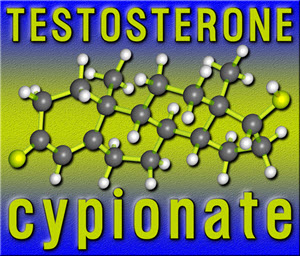Introduction
The correlation between mental health and physical activity has been a topic of increasing interest within the medical community. Particularly in American men, where lifestyle factors can significantly influence overall well-being, understanding this relationship is crucial. This article delves into a recent cross-sectional study that examines how varying levels of physical activity impact mental health outcomes among American men. By exploring these findings, we aim to provide valuable insights that can inform public health strategies and individual lifestyle choices.
Study Design and Methodology
The study in question employed a cross-sectional design to assess the mental health status and physical activity levels of a diverse sample of American men aged 18 to 65. Participants were recruited through a combination of online surveys and in-person interviews, ensuring a broad representation across different socio-economic backgrounds. Mental health was evaluated using standardized tools such as the Patient Health Questionnaire-9 (PHQ-9) for depression and the Generalized Anxiety Disorder-7 (GAD-7) for anxiety. Physical activity was measured using the International Physical Activity Questionnaire (IPAQ), which categorizes activity levels into low, moderate, and high.
Key Findings
The results of the study revealed a significant positive association between higher levels of physical activity and improved mental health outcomes. Men who reported engaging in moderate to high levels of physical activity exhibited lower scores on both the PHQ-9 and GAD-7, indicating reduced symptoms of depression and anxiety. Conversely, those with low physical activity levels were more likely to report higher levels of mental health issues.
Interestingly, the study also found that the type of physical activity mattered. Men who participated in team sports or group activities reported not only better mental health but also a stronger sense of community and social support, which further contributed to their overall well-being. This suggests that the social aspect of physical activity may play a crucial role in enhancing mental health.
Implications for Public Health
These findings have significant implications for public health initiatives targeting American men. Encouraging regular physical activity, particularly in social settings, could be an effective strategy for improving mental health. Health practitioners should consider prescribing physical activity as part of a holistic approach to treating mental health conditions. Additionally, community programs that promote group activities could be beneficial in fostering both physical and mental well-being.
Challenges and Considerations
Despite the promising results, there are challenges to consider. Not all men have equal access to resources that facilitate physical activity, such as safe public spaces or the financial means to join sports clubs. Socio-economic disparities must be addressed to ensure that all men can benefit from the mental health advantages of physical activity. Furthermore, cultural attitudes towards mental health and exercise can vary, which may influence participation rates and the effectiveness of interventions.
Conclusion
In conclusion, the cross-sectional study provides compelling evidence of the beneficial relationship between physical activity and mental health in American men. By engaging in regular, particularly social, physical activities, men can significantly improve their mental well-being. Public health strategies should focus on increasing access to and participation in such activities, while also addressing the socio-economic and cultural barriers that may hinder these efforts. As we continue to explore this vital connection, it is clear that promoting an active lifestyle is not only good for the body but essential for the mind.
Contact Us Today For A Free Consultation

- Erectile Dysfunction in American Men: Causes, Diagnosis, and Comprehensive Treatment Options [Last Updated On: March 6th, 2025] [Originally Added On: March 6th, 2025]
- Supplements for Men's Health: Fitness, Heart, Mental, and Prostate Support [Last Updated On: March 17th, 2025] [Originally Added On: March 17th, 2025]
- Sleep Apnea in American Men: Risks, Symptoms, and Effective Management Strategies [Last Updated On: March 18th, 2025] [Originally Added On: March 18th, 2025]
- Exploring Key Fitness Trends Enhancing American Men's Health and Well-being [Last Updated On: March 18th, 2025] [Originally Added On: March 18th, 2025]
- Osteoporosis in Men: Prevention Through Nutrition, Exercise, and Lifestyle Management [Last Updated On: March 19th, 2025] [Originally Added On: March 19th, 2025]
- Gut Health's Impact on Men's Wellness: Digestion, Mental Health, and Heart Disease [Last Updated On: March 19th, 2025] [Originally Added On: March 19th, 2025]
- Stress and Heart Health: A Comprehensive Guide for American Men [Last Updated On: March 20th, 2025] [Originally Added On: March 20th, 2025]
- Breaking Mental Health Stigma: Strategies for American Men to Prioritize Well-being [Last Updated On: March 21st, 2025] [Originally Added On: March 21st, 2025]
- Hydration's Critical Role in Men's Health: Performance, Kidney, and Cognitive Benefits [Last Updated On: March 21st, 2025] [Originally Added On: March 21st, 2025]
- Male Infertility: Causes, Diagnosis, Treatments, and Lifestyle Solutions for American Men [Last Updated On: March 21st, 2025] [Originally Added On: March 21st, 2025]
- Meditation: A Key to Enhancing Men's Mental Health and Well-being in the U.S. [Last Updated On: March 22nd, 2025] [Originally Added On: March 22nd, 2025]
- Alcohol Consumption and Liver Health: Impacts on American Males [Last Updated On: March 22nd, 2025] [Originally Added On: March 22nd, 2025]
- Effective Strategies for American Men to Quit Smoking and Improve Health [Last Updated On: March 22nd, 2025] [Originally Added On: March 22nd, 2025]
- High Cholesterol in American Men: Risks, Management, and Heart Health Strategies [Last Updated On: March 23rd, 2025] [Originally Added On: March 23rd, 2025]
- Exercise Reduces Cancer Risk in American Men: Colon, Prostate, Lung [Last Updated On: March 23rd, 2025] [Originally Added On: March 23rd, 2025]
- Exercise and Diabetes Management: A Vital Guide for American Men's Health [Last Updated On: March 23rd, 2025] [Originally Added On: March 23rd, 2025]
- Mental Health Days: Essential for American Men's Well-being and Balance [Last Updated On: March 24th, 2025] [Originally Added On: March 24th, 2025]
- Dietary Fiber: Essential for Men's Digestive, Weight, and Prostate Health [Last Updated On: March 24th, 2025] [Originally Added On: March 24th, 2025]
- Sleep's Crucial Role in Weight Management for American Men [Last Updated On: March 24th, 2025] [Originally Added On: March 24th, 2025]
- Hemorrhoids in American Men: Causes, Symptoms, Treatment, and Prevention Strategies [Last Updated On: March 24th, 2025] [Originally Added On: March 24th, 2025]
- Work-Life Balance: Its Profound Impact on American Men's Health and Well-being [Last Updated On: March 24th, 2025] [Originally Added On: March 24th, 2025]
- Promoting Men's Mental Health: The Vital Role of Regular Screenings [Last Updated On: March 24th, 2025] [Originally Added On: March 24th, 2025]
- Managing Allergies in Men: Strategies, Symptoms, and Professional Guidance [Last Updated On: March 25th, 2025] [Originally Added On: March 25th, 2025]
- Proactive Health Measures for American Men: Screenings, Lifestyle, and Mental Wellness [Last Updated On: March 25th, 2025] [Originally Added On: March 25th, 2025]
- Cycling Benefits for American Men: Health, Fitness, and Community Engagement [Last Updated On: March 25th, 2025] [Originally Added On: March 25th, 2025]
- Swimming: Enhancing Men's Health and Well-being in America [Last Updated On: March 25th, 2025] [Originally Added On: March 25th, 2025]
- Gout in American Men: Understanding, Managing, and Preventing Attacks [Last Updated On: March 25th, 2025] [Originally Added On: March 25th, 2025]
- Stroke Risks in American Men: Prevention, Management, and Lifestyle Strategies [Last Updated On: March 25th, 2025] [Originally Added On: March 25th, 2025]
- Plant-Based Diets: Health Benefits for American Men's Heart, Weight, and Cancer Risk [Last Updated On: March 25th, 2025] [Originally Added On: March 25th, 2025]
- Annual Physicals: Vital for Men's Health Maintenance and Disease Prevention [Last Updated On: March 25th, 2025] [Originally Added On: March 25th, 2025]
- Diet and Prostate Health: Key Foods to Embrace and Avoid [Last Updated On: March 25th, 2025] [Originally Added On: March 25th, 2025]
- Depression in Men: Recognizing Signs and Exploring Tailored Treatment Options [Last Updated On: March 26th, 2025] [Originally Added On: March 26th, 2025]
- Strength Training: Essential for American Men's Health and Vitality [Last Updated On: March 26th, 2025] [Originally Added On: March 26th, 2025]
- Seasonal Affective Disorder in American Men: Challenges, Impacts, and Treatment Options [Last Updated On: March 26th, 2025] [Originally Added On: March 26th, 2025]
- Dental Health's Crucial Role in Men's Overall Wellness and Disease Prevention [Last Updated On: March 26th, 2025] [Originally Added On: March 26th, 2025]
- Asthma in American Men: Symptoms, Management, and Unique Challenges [Last Updated On: March 26th, 2025] [Originally Added On: March 26th, 2025]
- Tai Chi: Enhancing Health and Well-being for American Men [Last Updated On: March 26th, 2025] [Originally Added On: March 26th, 2025]
- Stress and Digestive Health in American Men: Understanding and Managing the Gut-Brain Axis [Last Updated On: March 27th, 2025] [Originally Added On: March 27th, 2025]
- Addressing Men's Mental Health Challenges in the American Workplace [Last Updated On: March 27th, 2025] [Originally Added On: March 27th, 2025]
- Managing Anxiety in American Men: Tools and Techniques for Better Mental Health [Last Updated On: March 27th, 2025] [Originally Added On: March 27th, 2025]
- Arthritis in Men: Understanding, Preventing, and Managing Joint Health Effectively [Last Updated On: March 27th, 2025] [Originally Added On: March 27th, 2025]
- Varicose Veins in Men: Causes, Symptoms, and Effective Treatment Options [Last Updated On: March 27th, 2025] [Originally Added On: March 27th, 2025]
- Diet and Heart Disease: Key Insights for American Men's Health [Last Updated On: March 27th, 2025] [Originally Added On: March 27th, 2025]
- Kidney Stones in Men: Causes, Symptoms, Prevention, and Management Strategies [Last Updated On: March 27th, 2025] [Originally Added On: March 27th, 2025]
- Obesity and Cancer Risks in American Men: Understanding and Prevention Strategies [Last Updated On: March 27th, 2025] [Originally Added On: March 27th, 2025]
- Social Connections: Vital for American Men's Mental Health and Well-being [Last Updated On: March 27th, 2025] [Originally Added On: March 27th, 2025]
- Hiking: Enhancing Men's Health and Well-being in America [Last Updated On: March 28th, 2025] [Originally Added On: March 28th, 2025]
- Insomnia's Impact on Men's Health: Causes, Strategies, and Solutions [Last Updated On: March 28th, 2025] [Originally Added On: March 28th, 2025]
- Pilates: Enhancing Core Strength, Flexibility, and Mental Well-being for American Men [Last Updated On: March 28th, 2025] [Originally Added On: March 28th, 2025]
- Eye Exams: Vital for Men's Health and Vision in America [Last Updated On: March 28th, 2025] [Originally Added On: March 28th, 2025]
- Caffeine's Effects on American Men: Health Benefits and Risks Explored [Last Updated On: March 28th, 2025] [Originally Added On: March 28th, 2025]
- Antioxidants: Vital for American Men's Health and Disease Prevention [Last Updated On: March 29th, 2025] [Originally Added On: March 29th, 2025]
- Pollution's Impact on American Men's Health: Respiratory, Cardiovascular, and Reproductive Risks [Last Updated On: March 31st, 2025] [Originally Added On: March 31st, 2025]
- Understanding and Managing Migraines in Men: Symptoms, Triggers, and Effective Strategies [Last Updated On: April 2nd, 2025] [Originally Added On: April 2nd, 2025]
- Empowering American Men: The Vital Role of Mental Health Education [Last Updated On: April 3rd, 2025] [Originally Added On: April 3rd, 2025]
- Community Impact on Men's Health: Enhancing Wellbeing Through Social and Supportive Initiatives [Last Updated On: April 5th, 2025] [Originally Added On: April 5th, 2025]
- Rowing: A Comprehensive Fitness Solution for American Men's Health [Last Updated On: April 5th, 2025] [Originally Added On: April 5th, 2025]
- Alcohol and Mental Health: Impacts on American Men and Management Strategies [Last Updated On: April 6th, 2025] [Originally Added On: April 6th, 2025]
- Martial Arts: Enhancing Men's Health and Well-being Holistically [Last Updated On: April 8th, 2025] [Originally Added On: April 8th, 2025]
- Back Pain in American Men: Causes, Prevention, and Management Strategies [Last Updated On: April 8th, 2025] [Originally Added On: April 8th, 2025]
- Managing Panic Attacks: Strategies and Support for American Men's Health [Last Updated On: April 9th, 2025] [Originally Added On: April 9th, 2025]
- Skin Cancer in American Men: Risks, Prevention, and Early Detection Strategies [Last Updated On: April 10th, 2025] [Originally Added On: April 10th, 2025]
- Technology's Impact on Men's Health: Accessibility, Wearables, and Future Innovations [Last Updated On: April 10th, 2025] [Originally Added On: April 10th, 2025]
- Essential Vitamins for Men's Health: D, B12, C, E, K Benefits [Last Updated On: April 10th, 2025] [Originally Added On: April 10th, 2025]
- IBS in Men: Symptoms, Diagnosis, and Management Strategies for Improved Health [Last Updated On: April 11th, 2025] [Originally Added On: April 11th, 2025]
- Hearing Health Crucial for American Men: Risks, Prevention, and Action [Last Updated On: April 12th, 2025] [Originally Added On: April 12th, 2025]
- Obesity and Diabetes: Understanding the Link and Improving Men's Health [Last Updated On: April 13th, 2025] [Originally Added On: April 13th, 2025]
- Family Support: A Key Factor in American Men's Health and Well-being [Last Updated On: April 15th, 2025] [Originally Added On: April 15th, 2025]
- Diet and Mental Health: Nutritional Strategies for American Men's Well-being [Last Updated On: April 15th, 2025] [Originally Added On: April 15th, 2025]
- Basketball's Health Benefits for American Men: Fitness, Mental Well-being, and More [Last Updated On: April 16th, 2025] [Originally Added On: April 16th, 2025]
- Mental Health Awareness Campaigns: Breaking Stigma for American Men [Last Updated On: April 16th, 2025] [Originally Added On: April 16th, 2025]
- Lung Cancer in American Men: Risks, Detection, and Prevention Strategies [Last Updated On: April 17th, 2025] [Originally Added On: April 17th, 2025]
- CrossFit: Enhancing American Men's Health Through Comprehensive Fitness [Last Updated On: April 18th, 2025] [Originally Added On: April 18th, 2025]
- Joint Pain in Men: Causes, Prevention, and Management Strategies [Last Updated On: April 19th, 2025] [Originally Added On: April 19th, 2025]
- Soccer's Role in Enhancing Men's Health and Wellness in the U.S. [Last Updated On: April 19th, 2025] [Originally Added On: April 19th, 2025]
- Mental Health First Aid: A Vital Tool for Men's Well-being in America [Last Updated On: April 19th, 2025] [Originally Added On: April 19th, 2025]
- Socioeconomic Factors Impacting Health Outcomes in American Men: Income, Education, and More [Last Updated On: April 22nd, 2025] [Originally Added On: April 22nd, 2025]
- Prostate Health Essentials: Prevention, Screening, and Management for American Men [Last Updated On: April 23rd, 2025] [Originally Added On: April 23rd, 2025]
- Bipolar Disorder in Men: Understanding, Managing, and Overcoming Challenges [Last Updated On: April 23rd, 2025] [Originally Added On: April 23rd, 2025]
- Prostate Cancer Screening: Impact on Early Detection and Survival Rates in American Men [Last Updated On: April 23rd, 2025] [Originally Added On: April 23rd, 2025]
Word Count: 543




















